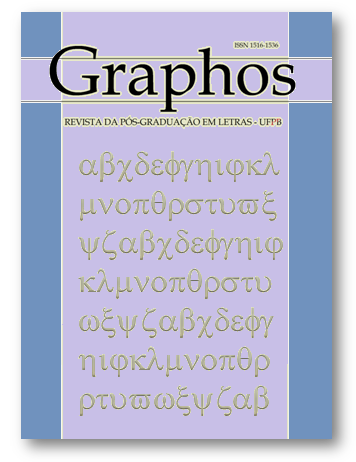The coming of age in Laís Bodanzky’s Chega de saudade
Mots-clés :
Laís Bodanzky, Chega de saudade, aging, timeRésumé
Over the past several decades, critical age theory has begun to question the narrative of decline that dominated discussions of the aging process throughout the 20th century. Recent research on the intersection between age and gender in the social sciences points to ongoing changes in the ways women in the third age see themselves and how they are seen by others. By contrast, in the domain of the humanities, literary and film narratives offer fertile terrain for the study of the impact age and gender have on subjectivity. Hence, this paper examines the construct of age and it’s intersection with gender in Laís Brodanzky’s film narrative Chega de saudade (2008).
Téléchargements
Références
BAARS, Jan. Aging and the Art of Living. Baltimore: Johns Hopkins University Press, 2012.
BEAUVOIR, Simone de. La Vieillesse. Paris: Editions Gallimard, 1970.
BEAUVOIR, Simone de. The Coming of Age. Trans. Patrick O’Brian. New York, NY: W.W. Norton & Co., 1996.
BODANSKY, Laís. (Director). Bicho de sete cabeças [DVD]. Brasil: Columbia TriStar Home Entertainment, 2002.
BODANSKY, Laís. (Director). Chega de saudade [DVD]. Brasil: Buena Vista Home Entertainment, 2008.
BODANSKY, Laís. (Director). As melhores coisas do mundo [DVD]. Brasil: Warner Bros, 2010. BODANSKY, Laís. Interview. Academia Brasileira de Cinema. s.d. Retrieved from
http://www.academiabrasileiradecinema.com.br/site/index.php?option=com_content&task=view&id=606&Itemid=510&limit=1&limitstart=2%23http://www.academiabrasileiradecine-ma.com.br/site/index.php?option=com_content&task=view&id=606&Itemid=510&limit= FRIEDAN, Betty. The Fountain of Age. NY: Simon & Schuster, 1993. DEFALCO, Amelia. Uncanny Subjects: aging in contemporary narrative. Columbus: Ohio State University Press, 2010. DITTMAR, Linda, “The Articulating Self.” In Carson, D., Dittmar, L. & Welsch, R. J. (Eds.). Multiple Voices in Feminist Film Criticism. Minneapolis: University of Minne-sota Press, 1994. p. 391 – 405.
GOLDENBERG, Miriam. A bela velhice. Rio de Janeiro: Record, 2013. GRAVAGNE, Pamela H. The Becoming of Age: cinematic visions of mind, body and identity in later life. Jefferson, NC: Farland & Company, Inc. 2013. GULLETTE, Margaret M. Declining to Decline. Charlottesville, VA: University Press of Virginia. 1997. GULLETTE, Margaret M. Safe at Last in the Middle Years: the invention of the midlife progress novel. Berkeley: University of California Press. 2000. GULLETTE, Margaret M. Aged by Culture. Chicago: The University of Chicago Press, 2004. LUFT, Lya. Perdas & ganhos. Rio de Janeiro: Editora Record, 2003. MARTINS DE MENDONÇA, M. L. & MOTTER DALA SENTA, C. R.
A representação do feminino no cinema brasileiro contemporâneo: um novo olhar sobre a velhice e o envelhecimento em Chega de Saudade. In: Razón y Palabra, 78 (Nov 2011-Enero 2012). Retrieved from http://www.razonypalabra.org.mx/N/N78/06_MartinsMot
ter_M78.pdf PESSANHA, Camilo. “Se Andava no Jardim.” In: Clepsidra. 1920. Retrieved from http://www.citador.pt/poemas/se-andava-no-jardim-camilo-pessanha.
RAY, Nicholas. (Director). Rebel Without a Cause [DVD]. Burbank, CA: Warner Bros, 2005.
WOODWARD, Kathleen. Inventing Generational Models: Psychoanalysis, Feminism, Literature. In K. Woodward, (Ed.). Figuring Age. Bloomington & Indianapolis: Indiana University Press. 1999. p. 149 – 168.







